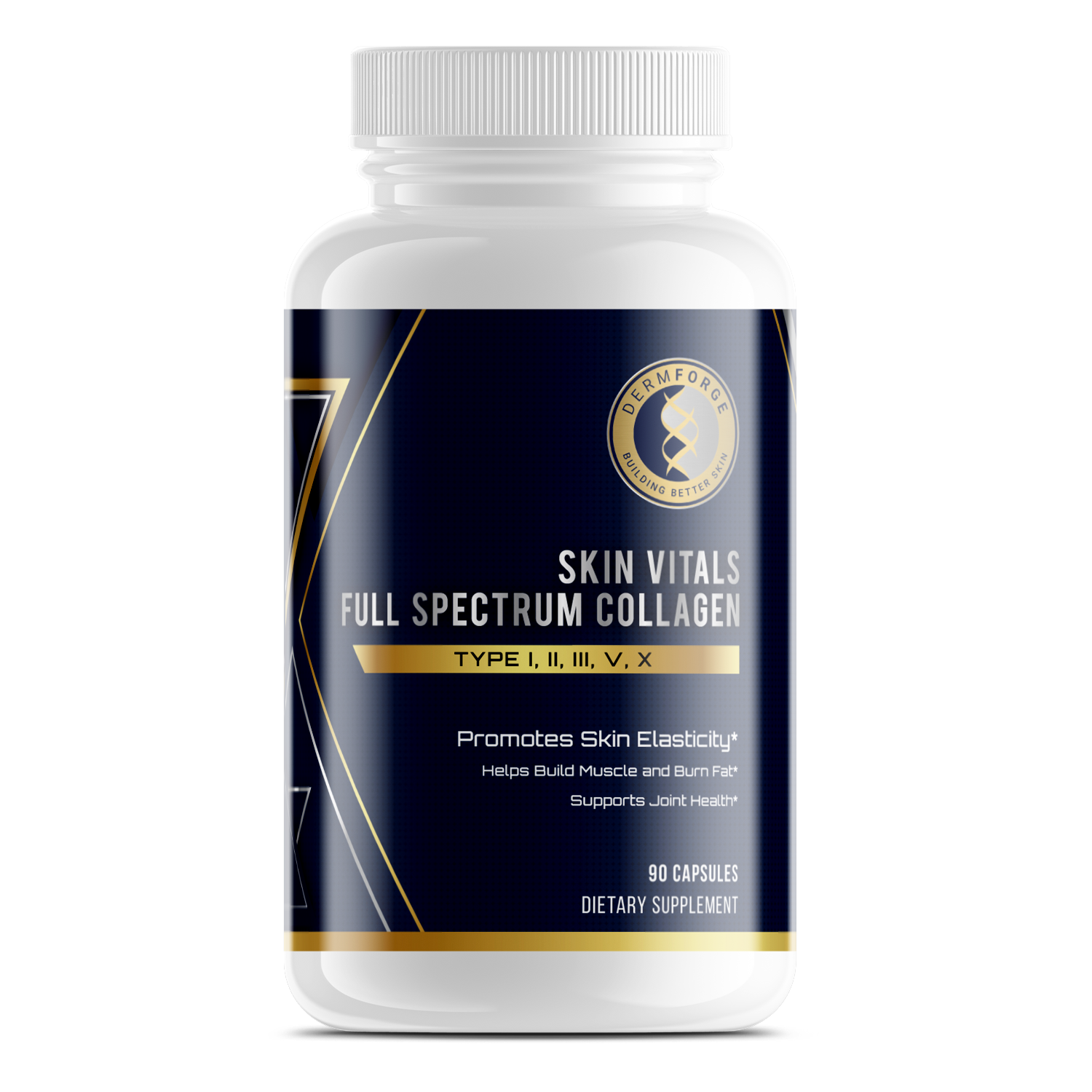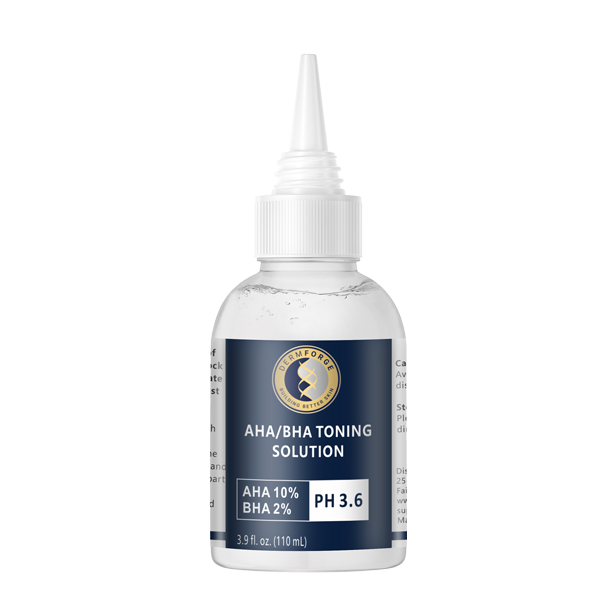Vitamin C has become a cornerstone in skincare, celebrated for its ability to brighten and rejuvenate the skin. Its popularity stems from its efficacy in addressing various skin concerns, making it a staple in many beauty routines.
One of the primary benefits of vitamin C is its antioxidant properties. By neutralizing free radicals, it protects the skin from environmental damage, such as pollution and UV exposure. This protection not only prevents premature aging but also maintains a youthful complexion.
Furthermore, vitamin C plays a crucial role in collagen synthesis. Increased collagen production leads to firmer and smoother skin, reducing the appearance of fine lines and wrinkles. This process enhances skin elasticity, contributing to a more youthful look.
Incorporating vitamin C into your skincare routine can also help reduce hyperpigmentation. By inhibiting melanin production, it lightens dark spots and evens out skin tone. This results in a brighter and more radiant complexion.
To maximize the brightening effects of vitamin C, it's essential to choose the right formulation. Products containing stabilized forms of vitamin C, such as tetrahexyldecyl ascorbate, offer enhanced stability and efficacy. Additionally, combining vitamin C with other antioxidants, like vitamin E and ferulic acid, can boost its effectiveness.
Incorporating vitamin C into your daily skincare regimen can yield significant improvements. However, consistency is key. Regular application, combined with sun protection, will help you achieve and maintain a luminous complexion.
Vitamin C is a versatile and powerful ingredient in skincare. Its benefits, ranging from antioxidant protection to collagen synthesis and brightening effects, make it invaluable. By understanding its properties and proper usage, you can harness its full potential for healthier, more radiant skin.
How Vitamin C Serum Works to Brighten Skin
Vitamin C serum has gained popularity for its ability to brighten skin. It inhibits melanin production, reducing dark spots and hyperpigmentation. This leads to a more even and radiant complexion.
As a potent antioxidant, vitamin C neutralizes free radicals caused by environmental factors. This reduces oxidative stress, which contributes to skin dullness and premature aging. By incorporating vitamin C serum into your skincare routine, you can diminish these effects, resulting in a brighter and more youthful appearance.
Regular use of vitamin C serum not only brightens the skin but also supports collagen synthesis. This enhances skin elasticity and firmness, further contributing to a healthier complexion. Therefore, the brightening effects of vitamin C are multifaceted, addressing both pigmentation and overall skin vitality.
Key Benefits of Vitamin C Serum for Skin Health
Vitamin C serum offers numerous benefits for skin health, making it a valuable addition to your skincare routine. One of its primary advantages is the reduction of dark spots, hyperpigmentation, and discoloration. By inhibiting melanin production, vitamin C helps fade existing dark spots and prevents new ones from forming, leading to a more even complexion.
Additionally, vitamin C boosts collagen production, which is essential for maintaining skin's firmness and elasticity. Increased collagen levels result in smoother, more youthful-looking skin, reducing the appearance of fine lines and wrinkles.
Furthermore, vitamin C's antioxidant properties protect the skin against environmental damage from pollutants and UV exposure. By neutralizing free radicals, it helps prevent premature aging and maintains skin's overall health.
Incorporating vitamin C serum into your daily regimen can significantly enhance your skin's appearance and resilience. The brightening effects of vitamin C contribute to a radiant, youthful glow, making it a popular choice among skincare enthusiasts.
Choosing the Right Vitamin C Serum for Maximum Brightening
Vitamin C serums have become a cornerstone in skincare routines, celebrated for their ability to brighten and rejuvenate the complexion. Understanding the different forms of vitamin C and their formulations is essential for maximizing these benefits.
Forms of Vitamin C: L-Ascorbic Acid vs. Sodium Ascorbyl Phosphate
L-ascorbic acid is the purest form of vitamin C and is renowned for its potent antioxidant properties. It effectively neutralizes free radicals, stimulates collagen production, and reduces hyperpigmentation. However, it is unstable and can degrade when exposed to light and air, potentially causing skin irritation, especially in sensitive individuals.
Sodium ascorbyl phosphate (SAP) is a stable, water-soluble derivative of vitamin C. It is gentler on the skin and less likely to cause irritation, making it suitable for sensitive skin types. While SAP is more stable, it is considered less potent than L-ascorbic acid in delivering immediate antioxidant benefits.
Ideal Concentration Levels and Enhancing Ingredients
For optimal results, vitamin C serums typically contain L-ascorbic acid concentrations between 10% and 20%. Concentrations above 20% do not necessarily increase efficacy and may lead to irritation.
Combining vitamin C with other antioxidants enhances its effectiveness. Vitamin E (tocopherol) works synergistically with vitamin C to protect the skin from free radical damage. Ferulic acid, a plant-based antioxidant, stabilizes vitamins C and E, boosting their photoprotective properties. A formulation containing 15% L-ascorbic acid, 1% vitamin E, and 0.5% ferulic acid is considered the gold standard for antioxidant serums.
Selecting the Right Vitamin C Serum
When choosing a vitamin C serum, consider your skin type and sensitivity. If you have sensitive skin, a serum with sodium ascorbyl phosphate may be more suitable due to its gentle nature. For those seeking more potent results and without sensitivity concerns, L-ascorbic acid-based serums are recommended. Additionally, look for formulations that include vitamin E and ferulic acid to enhance the serum's stability and efficacy.
Incorporating a well-formulated vitamin C serum into your skincare routine can significantly improve skin brightness, texture, and overall health. By understanding the different forms of vitamin C and their synergistic ingredients, you can select a serum that best suits your skin's needs and achieve the desired brightening effects.
How to Properly Apply Vitamin C Serum for Best Results
Achieving the brightening effects of vitamin C requires proper application of the serum. Begin by cleansing your face to remove impurities, allowing the serum to penetrate effectively. After cleansing, apply a toner if it's part of your routine. Then, dispense a pea-sized amount of vitamin C serum onto your fingertips. Gently massage it into your skin using upward, circular motions, covering your face and neck. Allow the serum to absorb for a few minutes before proceeding to the next step.
For optimal results, incorporate vitamin C serum into your morning skincare routine. This timing leverages its antioxidant properties to protect your skin from environmental stressors throughout the day. After applying the serum, follow with a moisturizer to lock in hydration. Finish with a broad-spectrum sunscreen to shield your skin from UV damage. Consistent daily use enhances the serum's effectiveness, leading to a brighter complexion over time.
When layering skincare products, apply vitamin C serum after cleansing and toning but before moisturizing and sun protection. This sequence ensures maximum absorption and efficacy. If using additional serums, apply them based on their consistency, starting with the lightest. Always perform a patch test when introducing new products to avoid potential irritation. By following these steps, you can fully harness the brightening effects of vitamin C in your skincare regimen.
Common Myths and Misconceptions About Vitamin C Serum
Vitamin C serum is celebrated for its ability to brighten skin and combat signs of aging. However, several myths surround its use. One common misconception is that Vitamin C serum causes skin irritation. While some individuals may experience mild redness or tingling, these effects often result from high concentrations or improper application. Starting with a lower concentration and performing a patch test can help minimize potential irritation.
Another myth suggests that Vitamin C serum oxidizes quickly, rendering it ineffective. Although Vitamin C is prone to oxidation, proper storage can maintain its potency. To minimize oxidation, store your serum in a cool, dark place, and ensure the bottle is tightly sealed after each use.
Some believe that Vitamin C serum should not be combined with certain ingredients, such as niacinamide or hyaluronic acid. In reality, these combinations can enhance the serum's effectiveness. For instance, pairing Vitamin C with hyaluronic acid can boost hydration, leading to a more radiant complexion.
There's also a misconception that Vitamin C serum delivers instant results. While it begins working upon application, visible improvements in skin tone and texture typically require consistent use over several weeks. Patience and regular application are essential for achieving the desired brightening effects of Vitamin C.
By dispelling these myths, you can confidently incorporate Vitamin C serum into your skincare routine, harnessing its full potential for a brighter, healthier complexion.
Vitamin C Serum vs. Other Brightening Ingredients: What’s the Difference?
When it comes to achieving a brighter complexion, several skincare ingredients stand out, notably vitamin C, niacinamide, and alpha arbutin. Each offers unique benefits, but understanding their differences can help you choose the best option for your skin needs.
Vitamin C
Vitamin C, or ascorbic acid, is renowned for its antioxidant properties. It neutralizes free radicals, reducing oxidative stress that leads to dullness. Additionally, it inhibits melanin production, addressing hyperpigmentation and promoting an even skin tone. Regular use can result in a more radiant complexion.
Niacinamide
Niacinamide, a form of vitamin B3, offers broad skincare benefits. It improves skin elasticity, enhances the skin barrier, and evens out skin tone. Its anti-inflammatory properties make it suitable for acne-prone skin. While not as potent in brightening as vitamin C, it effectively reduces redness and blotchiness.
Alpha Arbutin
Alpha arbutin is a naturally derived compound known for its skin-lightening properties. It inhibits tyrosinase, an enzyme involved in melanin production, thereby reducing hyperpigmentation and dark spots. Unlike some brightening agents, alpha arbutin is gentle and suitable for all skin types.
Choosing the Right Ingredient
If your primary goal is to combat oxidative stress and brighten your complexion, vitamin C is a strong choice. For those seeking to improve skin texture and reduce inflammation, niacinamide may be more appropriate. If targeting hyperpigmentation and dark spots is your main concern, alpha arbutin could be the most effective option. In some cases, combining these ingredients can yield enhanced results, but it's essential to introduce them gradually to monitor skin response.
Understanding the distinct properties of these ingredients allows you to tailor your skincare routine effectively, maximizing the brightening effects of vitamin C and its counterparts.
Conclusion
Incorporating vitamin C serum into your skincare routine can significantly enhance your skin's appearance and health. Its antioxidant properties combat free radicals, reducing signs of aging and promoting a youthful glow. Additionally, vitamin C inhibits melanin production, leading to a more even skin tone and diminished dark spots. By boosting collagen synthesis, it also improves skin firmness and elasticity.
To maximize the brightening effects of vitamin C, choose a serum with a suitable concentration for your skin type. Regular application, complemented by sun protection, ensures optimal results. By understanding its benefits and proper usage, you can achieve a radiant complexion and maintain skin health over time.






